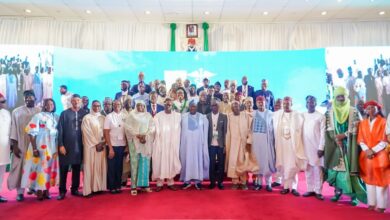
The United Nations Children’s Fund (UNICEF) has said only 34% of infants
under six months of age were exclusively breastfed in Nigeria, a far cry from the 50% in 2025 target set by the World Health Organisation (WHO).
This was contained in a statement issued by the two organisations on Thursday, August 1, 2024, commemorating this year’s breastfeeding week.
Speaking about the challenges faced by breastfeeding mothers in the country, UNICEF Nigeria’s Country Representative, Cristian Munduate said
“Breastfeeding is the foundation of lifelong health and well-being. It is a simple, cost-effective, and natural way to provide infants with the nutrients they need for healthy growth and development.
“However, despite its proven benefits, exclusive breastfeeding rates in Nigeria remain low. Many mothers face cultural, social, and practical barriers that prevent them from breastfeeding exclusively for the first six months of their child’s life”.
The statement explained that, during this critical period of early growth and development, the antibodies in breastmilk protect babies against illness and death.
This, it noted was especially important during emergencies, when breastfeeding guarantees a safe, nutritious, and accessible food source for infants and young children.
It also stated that breastfeeding reduces the burden of childhood illness, and the risk of certain types of cancers and noncommunicable diseases for mothers.
This World Breastfeeding Week, under the theme “Closing the gap: Breastfeeding support for all,” UNICEF and WHO are emphasizing the need to improve breastfeeding support as a critical action for reducing health inequity and protecting the rights of mothers and babies to survive and thrive.
They noted that, in Nigeria, key gaps in breastfeeding support include insufficient maternity leave policies, lack of workplace support, and inadequate access to breastfeeding education and services, particularly in rural areas.
“Only seven states offer the recommended 24 weeks of paid maternity leave, and many women return to work without the necessary support to continue breastfeeding.
“To close these gaps, the government, employers, healthcare providers, and communities need to collaborate. Policies should be enacted to extend paid maternity leave, create breastfeeding-friendly workplaces, and provide comprehensive breastfeeding education and support services”, the statement read.






